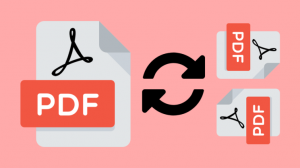What do we mean when we call a search engine "unsafe"? It means that the typical business
model for an Internet search engine is to collect your data in exchange for using it. The world
of eCommerce thrives on mined data. Companies use it to target advertising at you
everywhere you go. Search engines also recycle the data to serve you customized search
results, eventually paring your preferences down until you’re effectively living in a search
bubble.
What Kind of Data is Collected?
First, a variety of metrics is used to establish a users’ profile. This can include things like an IP
address, cookies (bit of data stored on your device), your Internet Service Provider’s record of
your location, and a sniff of your web browsers’ stats, which tells them things like what device
and operating system you’re using. This is just used to create a thumbnail of your virtual
identity and it’s almost as specific as a fingerprint.
Then a record is kept of your query history and a record of which results you click on. If you
skip ads right away when watching videos, that’s noted. If you click on ads sometimes, that’s
noted. If you purchase a product online and that company is part of the ad network working in
partnership with the search engine, that’s noted. Lookup a schedule for your favorite TV
show, buy some pet food online, and search for information on property taxes, and the entire
ad network now knows that you’re a homeowner, have a dog, and are a Walking Dead fan.
These records can last for years. The point of calling this unsafe is not to say that you have
embarrassing secrets which could get out, as the magnitude of this system creating a virtual
avatar juggled around by deep-learning algorithms to figure out how to persuade you to buy
something. And then there’s the matter of data breaches where through hackers or careless
handling, your data gets compromised by unknown third parties, which is where it starts
getting dangerous.
What Alternatives Are There?
DuckDuckGo is one serious competitor which has risen to the front lines among users
concerned with Internet privacy. It aggregates results from other search engines, then serves
the results anonymously, stripped of both tailored results and data collection. In addition,
DuckDuckGo has gotten good reviews for its stripped-down approach. While Google, Yahoo,
and Microsoft are web portals in their own right, DuckDuckGo feels like 1990s Google, with
just a plain list of ten blue links per page.
HotBot is another contender. A general-purpose search engine that predates Google by one
year, HotBot is old-school web tech that survived by taking the high road, choosing not to
mine users’ data. In addition, HotBot also strives to prune search results of potentially harmful
links such as malware or spammy sites. It’s a great alternative that humbly does its job and
gets out of your way.
There’s one more aspect to online privacy that is especially touchy. Not to dance around the
issue, but the Internet gets used to looking up mature subjects, whether for gratification or
information. For those purposes, a separate, compartment search engine may be desired.
Hot.com anticipates just this need, serving up adult site results only. Not only does it not sniff
your data, but it also eliminates unrelated results when you had just one thing in mind.
One more honorable mention goes out to Gibiru. Gibiru also respects user privacy, and in
addition takes a more liberated approach to results, serving up uncensored links. Your safety
is in your own hands here regarding what you click on, but for those who want unfiltered
results even down to sites blacklisted by the heavy players, this is the true path to the wild
open Internet.
Conclusion
Even if you have no concerns for online privacy, it’s worth using alternative search engines
sometimes just to see what the big three don’t show you. For that matter, there’s no reason to
stick to one search engine at all. For most queries, all modern search engines will find an
adequate list of results, the primary difference being what they do with your data after you use
them.





